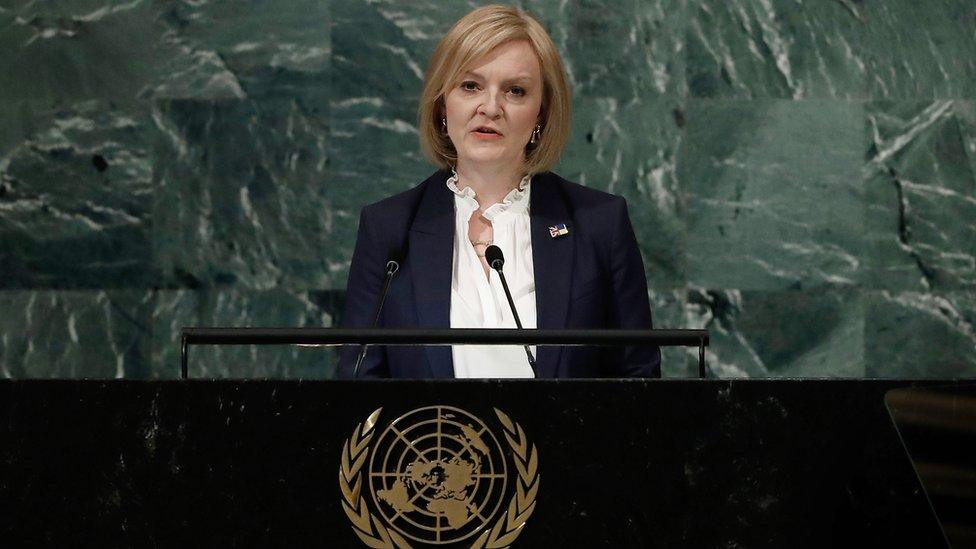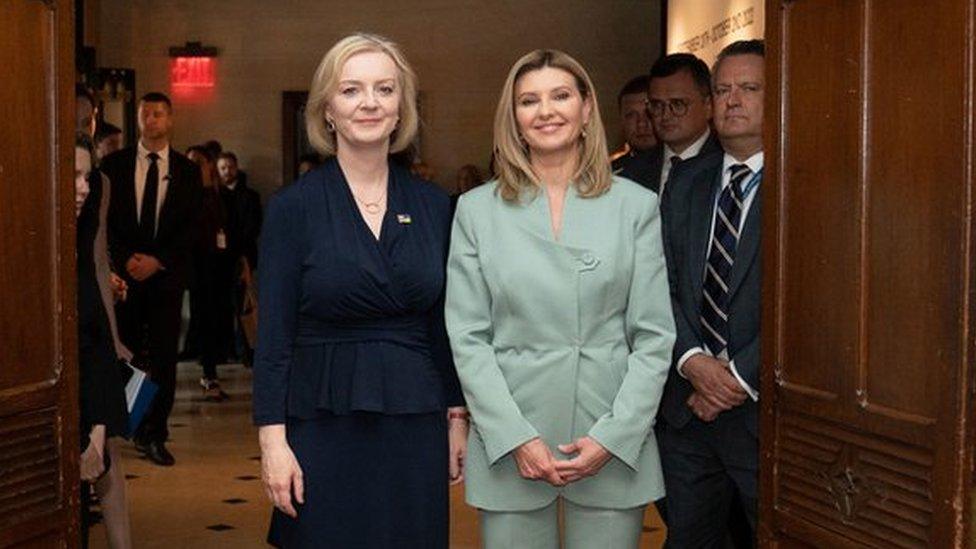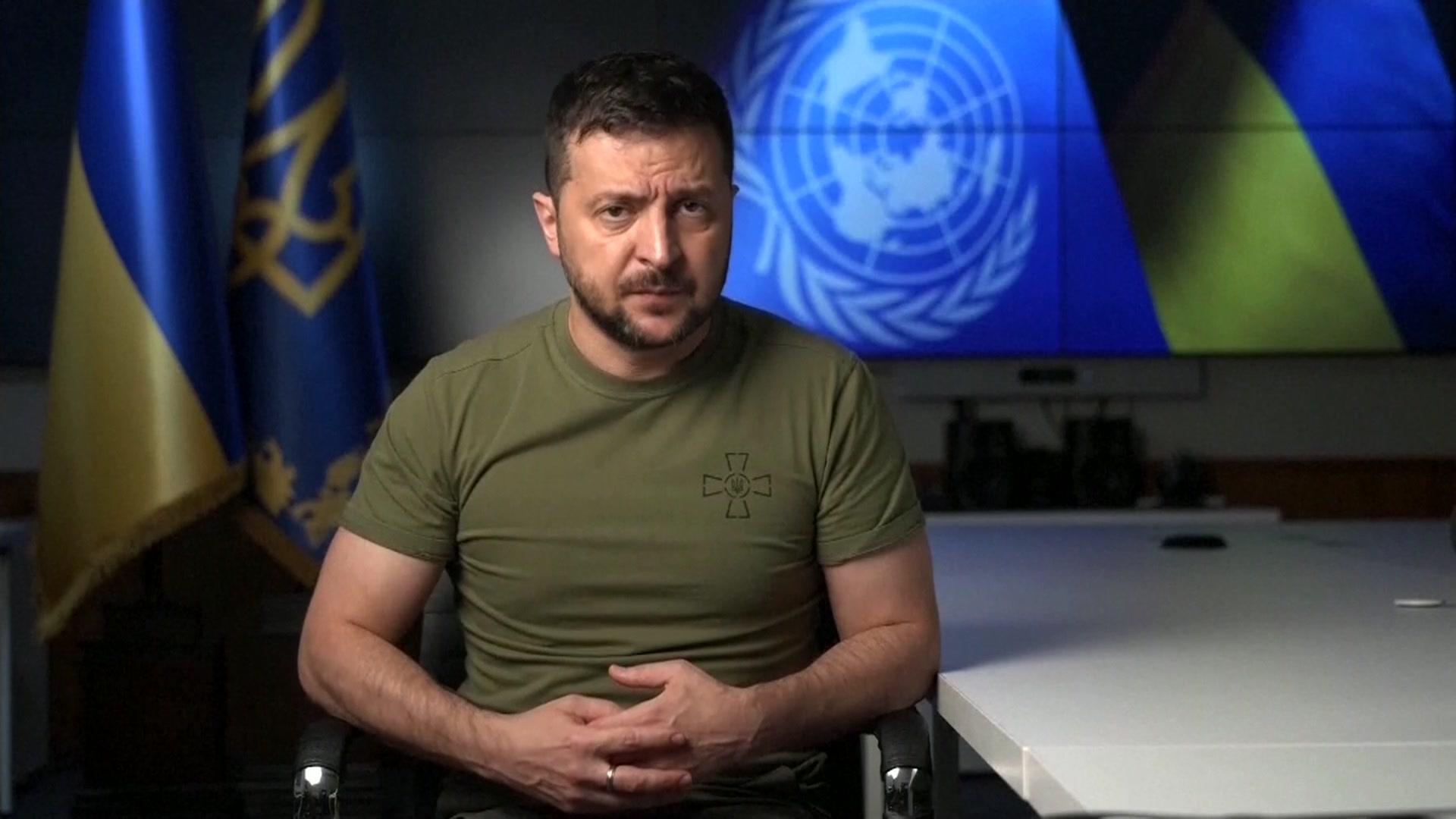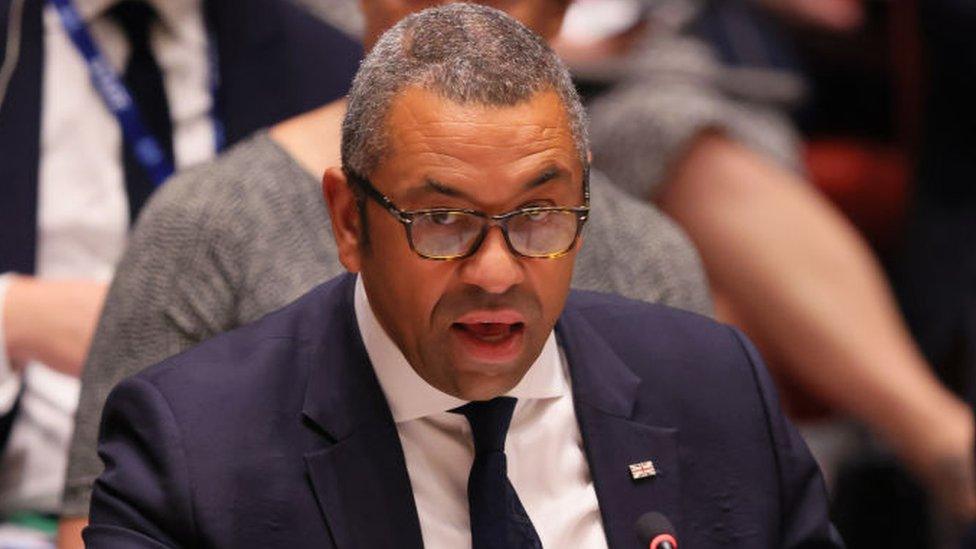Chris Mason: Truss’s dash to New York shines light on her priorities as PM
- Published

In the corridors of the United Nations, the war in Ukraine has shaped every conversation.
This is an international crisis with obvious domestic implications too - and so it shapes the whole political landscape Liz Truss has inherited as prime minister.
And through it we can see the instincts, the world-view, the outlook she brings to the job.
Her address to the UN General Assembly is a benchmark against which we will be able to measure her premiership, comparing it to the very objectives she has set for herself.
Firstly, her driving ambition: turbo-charging economic growth.
She has the "long-term aim" to get the economy growing at "an average of 2.5%" a year. Since the financial crisis in 2008, there have been just three years where this has happened, external.
Among the preferred fuels for growth, tax cuts.
There are the ones she promised while campaigning for the Conservative leadership - cutting National Insurance and reversing the planned rise in Corporation Tax - and others are likely too.
Her team didn't deny a report in the Times suggesting a cut in stamp duty - the tax on buying property.
"The free world needs this economic strength and resilience to push back against authoritarian aggression," the prime minister told world leaders.
And, in so doing, she tied her domestic vision to the international situation.
There is the very long-term aim - with a deadline long after she is likely to have moved out of Downing Street, voluntarily or otherwise - for the UK to be a net energy exporter by 2040.
Again, let's put that in context.
The UK has been a net importer of energy since 2004, having been a net exporter for much of the 25 years before that, external.
As the House of Commons Library points out, the gap between imports and exports has increased since 2004. In 2017, UK imports of energy were almost twice as large as its exports.
So it's a big ambition.
We will soon see the beginning of the attempt to achieve it: a willingness to embrace nuclear power, to frack and drill more wells in the North Sea.
"We won't be strategically dependent on those who seek to weaponise the global economy," Ms Truss has said.
Then, on a slightly tighter timescale, but still longer than any prime minister since Tony Blair has managed in office, is the policy on defence.
Ms Truss wants to spend 3% of national income on defence by 2030. It is currently around 2% and edging higher.
It has decreased from about 7% in the 1950s, but the UK is already a big spender compared to many in the Nato defence alliance, which asks members to spend at least 2%.
Last year just eight members out of 30 met that target, with the UK being one of them, external.
But can her strategy to boost economic growth work?
She hasn't yet suggested any significant areas for spending cuts and there are vast new additional bills, not least to pay for the help for households and businesses with inflated energy bills, caused in large part by the consequences of the war in Ukraine.
And then there are the tax cuts.
"I don't think it's right, I don't think its responsible and it's certainly not Conservative", was the verdict over the summer of the former chancellor, and former leadership rival, Rishi Sunak.
Government borrowing is going to rocket. The pound is weak. Prices are rising.
And, for now at least, Liz Truss is making a virtue of embracing unpopular means - such as lifting the cap on bankers' bonuses, external - to achieve her ends, economic growth.
This has the merit, supporters argue, of being principled and refreshing in a politician.
But it is also potentially dangerous: the logical consequence of knowingly taking on unpopular policies in democratic politics is, well, you become unpopular too, and lose.
And so the challenge is winning people around, with the Conservatives consistently trailing Labour in the opinion polls throughout this calendar year.
Related topics
- Published22 September 2022

- Published22 September 2022

- Published22 September 2022

